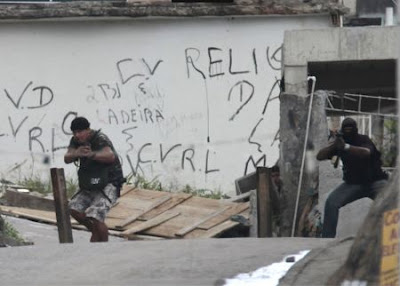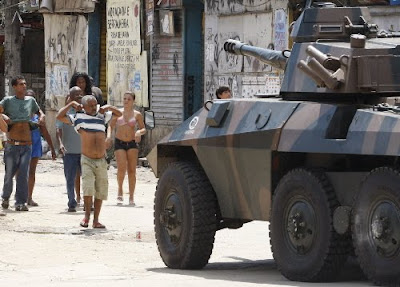




My
summers through high school and most of college were spent working construction and learning every foul word and expression Mexican spanish has to offer. Stripping forms, finishing concrete, and jackhammering equals long days and
hard work, but I wasn't really prepared for the work I had committed to a month earlier when I spontaneously decided to head to Mexico and
build a house with Habitat for Humanity. I was bound for a small settlement called Chinameca in the state of Morelos with a group of volunteers with the idea of finishing a house in a week. A took a week off of work, but I was going to be compensated with something worth far more than a dollar amount. On the last day of the build, having been one of the few Spanish speakers on the project, I sat holding a middle aged single mother of four as she sobbed uncontrollably in
appreciation for the work we had all done to provide her family with their own home. Not just the twenty-some volunteers, but the local masons, the pueblito's "don", as well as various other member's of the community who had come
together to make a dream into reality in just seven days. This was quite a change from what I was used to, instead of a middle aged woman up in arms with frustration over a crack in the finish of her three car garage, I was now comforting a middle aged woman whose glossy eyes and ear to ear grin were the product of a 900 sq. foot house made of block whose construction lasted just over a
week. To this day, the recollection of this moment clouds my eyes. The feeling was like a drug, and I've been addicted ever since. Two houses later, I find myself here in Bogota, Colombia.
Extensive fumbling through the Internet landed me with an organization looking for volunteers with construction experience to come and help renovate an elementary school in the Colombian neighborhood of
Soacha, one of Bogota's poorest districts. The deal was sealed when I scrolled down further to discover they were also in need of artists to paint murals on the walls of the school.
Arriving in Bogota on a rainy Monday night I first met the organizations founder, Al. A British born vagabond like myself, the 26 year old had founded the NGO just six months earlier. This was a newly discovered piece of
information that quickly initiated my interrogation-like Q&A with Al. That night I met the family who I was to be staying with for the next month. The mother, a sweet woman of about five feet, was the first to greet me. Though small in stature, her virtue is quite the opposite. I later found out that she founded both the primary and secondary school in Soacha (those which we would be working on). Her sons, Johnny and Arnold, also do a lot of work with the
school and its programs. Being similar in age, they have become very close friends of mine and our conversations have formulated many ideas of developing a home building program in Soacha. Though I am not so sure I am ready to put on the breaks yet and develop a foundation yet as I still have one last stop before slowing down, they will be a favorable contacts for the organization when it does become a
reality. Everyday I walk through Soacha, I take note of the construction going on and I notice the
lack of equipment, resources, and overall manpower. What may take two masons two months to build, a group of volunteers could do with there backs and volunteer fees in less than two weeks. Another noted application to the houses is the
paint. Though very few of these houses are painted (most are left with exposed brick and concrete), the small street that I pass everyday that boasts its brightly colored exterior creates a different psych for those who stroll through. The colors generate a sense of beauty as opposed to a sense of ignobility and underdevelopment. It would take less than $100 to paint a home in Soacha, an amount that would barely suffice a couple of mixed drinks at a Vegas nightclub, yet it has the ability to forever change the
mentality of the home's inhabitants creating a sense of hope, self-worth, and motivation.
Having past the halfway mark on my time here in Bogota, I feel
satisfied with the work I am doing. The mornings are spent picking a ditch in an area that will eventually become a playground area for the adjacent elementary school, and when the rain rolls in (usually between noon and 1pm everyday) I head inside to work on the
murals. The two hour trek to and from the site everyday becomes worthwhile when you are hugged by some of the student's, some of which I haven't even met. The children are often just as appreciative as the adults. During some of the home builds, kids were amongst the hardest workers.
Recent years have created a more
optimistic view of the world for me. I believe we are beginning to see that we can no longer ignore each other, we can no longer turn a cold shoulder on those born in unfavorable conditions, that we can no longer live in
ignorance of the developing issues that help to create much of the ugliness in the world. Want to put a dent in the flow of
immigration over our southern border? Use the money to build houses to help them stay instead of a wall to keep them from having a chance. Change the situations in which cause them to leave. Give people a reason to stay, because that is ultimately what many of them wish to do, not leave their families and risk their lives
chancing it to an unknown territory with a foreign language. The woman for who we built a house in El Salvador had her husband leave over a year ago. I find it hard to believe that it was an easy decision leaving his wife and children only to
taunt death riding a train through gang infested territory, traverse corrupt police officers, and walk days through a desert with little food or water for a 'chance' at obtaining a job in the US and providing a better life for his family back home. The
reality is, his family was living in a makeshift home of dirt floors and a ceiling made from sticks and jointed garbage bags. The decision to leave becomes one of
necessity when faced with unlivable conditions.
More than just American, or Colombian, Central American, or Mexican we are
human beings. Brothers and sisters of the same species. There are over forty-two thousand languages in the world, but only one set of feelings
shared by all who carry the human genome. The unnecessary suffering is not going to be solved by any government, it will be solved by us. We already have the capacity and the resources, we just have to
realize it. We just have to come to the realization that we have the power to change it. Together. Now. John Lennon said it quite well
"Millions of mind guerrillas... Raising the spirit of peace and love, not war."























